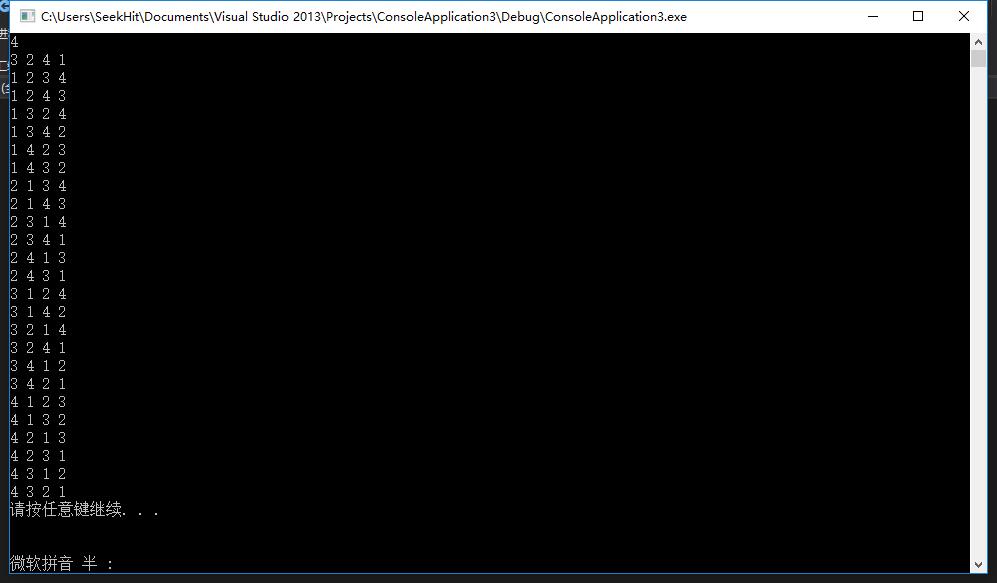利用next_permutation实现全排列升序输出,从尾到头找到第一个可以交换的位置,
直接求到第一个不按升序排列的序列。
1 #include <iostream> 2 #include <algorithm> /// next_permutation, sort 3 #define MAX 100 4 using namespace std; 5 6 int main() { 7 int myints[MAX],n; 8 cin >> n; 9 for (int i = 0; i < n; i++) 10 { 11 cin >> myints[i]; 12 } 13 sort(myints, myints + n); 14 15 do { 16 for (int i = 0; i < n; i++) 17 { 18 cout << myints[i] <<" "; 19 } 20 cout << endl; 21 } while (next_permutation(myints, myints + n)); ///获取下一个较大字典序排列 22 23 system("pause"); 24 return 0; 25 }

同理,prev_permutation恰恰相反。
附一个全排列字母输出的例子:
题目描述
输入一个字符串,按字典序打印出该字符串中字符的所有排列。例如输入字符串abc,则打印出由字符a,b,c所能排列出来的所有字符串abc,acb,bac,bca,cab和cba。 结果请按字母顺序输出。
输入描述:
输入一个字符串,长度不超过9(可能有字符重复),字符只包括大小写字母。
1 #include "iostream" 2 #include "string" 3 #include "vector" 4 #include "algorithm" 5 6 using namespace std; 7 8 void Permutation(string str) { 9 vector<char> sstr; 10 for (int i = 0; i < str.length(); i++) 11 sstr.push_back(str[i]); 12 13 14 do { 15 for (int i = 0; i < str.length(); i++) 16 { 17 cout << sstr[i] << " "; 18 } 19 cout << endl; 20 21 } while (next_permutation(sstr.begin(), sstr.end())); 22 23 } 24 25 26 int main() { 27 string str; 28 while (cin >> str) 29 { 30 Permutation(str); 31 } 32 return 0; 33 }